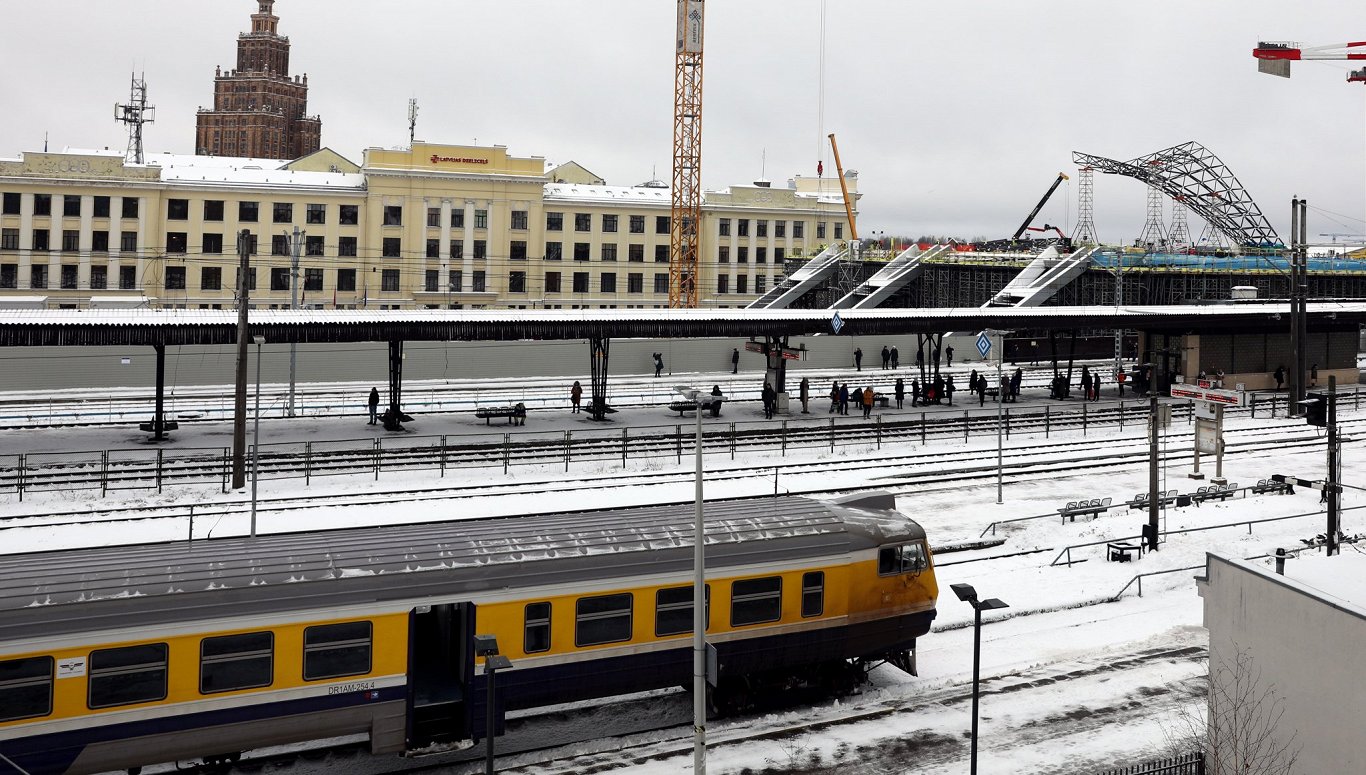Prime Minister Evika Siliņa (New Unity) said at the government meeting that giving passenger transportation money out of contingency funds is not right and “all of this policy needs to change,” stressing that “policy needs to be planned.”
Minister of Finance Arvils Ašeradens (JV) also gave critical remarks to the situation, pointing out that the need to seek basic funding at the end of each year is a serious mistake. The minister added that he would understand a lag of 2%-3%, but it is currently 30%-40%.
Transport Minister Kaspars Briškens (Progressives) acknowledged the need for change, moving to more accurate planning in the future.
Some directions for future action were outlined in a report reviewed by the government.
More trains, fewer buses
Bus and train services are currently out of sync on the regional route network, but the Ministry plans to gradually reduce bus trips where train travel is possible and ensure bus transport to trains.
It is also planned to reduce the number of unprofitable bus journeys. For example, of the 749 journeys whose profitability is not higher than 10%, it is planned to maintain 556. On 29 routes, it is possible to introduce on-demand transport.
There is currently a shortage of trains to allow more widespread use of rail transport, but the Ministry says new electric trains are scheduled to be commissioned next year, while battery trains will start operating in 2027-2029. Railways are gradually being used more, according to the Transport Ministry's data. in 2019, 61.5% of passengers used buses and 38.5% used railways in regional transport. In the eight months of 2023, 56.5% of passengers were transported by bus and 43.5% by rail.
Single ticket and regular interval schedule
In order to make public transport more attractive to residents, it is planned to establish regular timetables for the operation of electric trains in regional transport, gradually also in bus and coach transport, where possible and appropriate. This is planned to start at the end of this year and gradually improve the timetable by the end of 2027.
The Ministry also concluded that it is necessary to offer the possibility to combine the use of different modes of transport in a single ticket and plans to develop and introduce new ticket products in 2024-2025, as well as simplify the subscription ticket system and set higher discounts.
In 2024-2026 it is planned to create a single ticket in the Rīga metropolitan area. It could offer more opportunities for passengers to plan a journey on different modes of transport, including cycling and micro-mobility tools. The aim is to introduce a single rate, a single ticket, and a single timetable.
Such a system might be implemented all over the country be implemented, because the number of residents and public transport users outside the Rīga metropolitan area is relatively small, the Ministry says.
Plans to review ticket prices early next year
In order to mitigate the losses of carriers, changes in ticket prices are also planned, the introduction of which could be commenced in the first quarter of 2024. Ticket revenues are expected to increase by around €8 million. The Ministry acknowledged that if ticket prices rise, the number of passengers could decrease by approximately 9%.
“However, guided by the planned intentions that as the quality of public transport services (such as electric train transport) improves and offers passengers the opportunity to plan and move with a single ticket and different types of vehicles, the return of passenger traffic is expected already in the short term,” the Ministry's report said.
The Ministry also says it would be necessary to discuss regular fare reviews on routes of regional significance in the future. For example, provide that fares are reviewed every two years at the inflation rate if the accumulated inflation rate reaches 5%, or revise tariffs whenever the accumulated inflation rate reaches 5% since the tariff changes.
Another €30 million is needed to cover losses this year
According to the financing plan and the decisions of the Public Transport Council, the Ministry of Transport (SM) transfers money monthly to the carriers and once a quarter to the local governments of the State capital.
In 2023, the budget for grants to carriers is EUR 74.787 million, which is 6.4% more than in the 2022 base budget.
But by October 2, 99.1% of that funding had been spent, and clearly, by the end of the year, the remaining money would not be enough.
A total of 74 million budgeted will not cover potential losses in 2023, with the total additional funding needed from the state budget in 2023 amounting to 30.166 million euros.
The Ministry explained that there has been a significant increase in the costs of passenger transport, for example, the increase in electricity prices on the railways is already around EUR 7 million, while other costs have increased too.
The number of passengers carried increased gradually this year compared to the first eight-month figures of 2022, with 2.25 million or 9% more carried this year. The number of passengers carried in the first eight months of 2023 has also surpassed 2021 and 2020 figures but is yet to reach 2019 figures, with at least 23 percent more passengers carried by bus than in 2023 and 8 percent by rail.
On Tuesday, the government also decided to allocate EUR 15 million from contingency budgets – of which EUR 10,411,090 for the provision of transport services in regional bus and coach transport and EUR 4,588,910 for train transport.






























